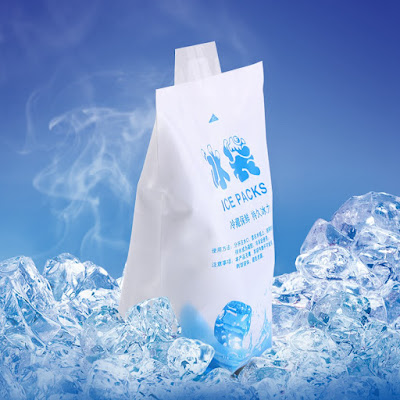Cooling packs, also known as cold packs or ice packs, are
portable containers filled with a substance that stays cold for an extended
period of time. They are commonly used to keep food and drinks cold but also
have many other uses.
Several types of cooling packs are available, each with its
unique properties. For example, some cooling packs use water as the cooling
agent, while others use a mixture of water and refrigerant. Still, others use a
phase change material, which absorbs heat as it transitions from a solid to a
liquid.
Common Uses of Cooling Packs
·
One of the most common uses for cooling packs is
to keep food and drinks cold when traveling or participating in outdoor
activities. They can be placed in a cooler or lunch bag to keep perishable
items fresh and safe to eat. Cooling packs are also useful for preventing
drinks from getting warm when traveling or when there is no access to a
refrigerator.
·
In addition to keeping food and drinks cold,
cooling packs also have many other uses. For example, they can be used to
reduce swelling and pain in injuries, such as sprains and strains. Simply place
the cooling pack on the affected area for a few minutes to help reduce
inflammation and numb the pain. They can also be used to lower the body's
temperature in cases of fever or heat stroke. In these cases, it is important
to follow the instructions provided by a healthcare professional or the cooling
pack packaging.
·
Cooling packs are also used in the medical field
to keep medications and blood products at a safe temperature during transport.
Maintaining the integrity and effectiveness of these products is important, and
using a cooling pack can help
ensure that they are stored at the proper temperature.
Other Applications of Cooling Packs
In addition to their use in healthcare and the
transportation of temperature-sensitive goods, cooling packs have a number of
other applications. Some examples include:
·
Industrial:
Cooling packs are used in a variety of industrial settings to keep equipment
and machinery cool and reduce the risk of overheating.
·
Agriculture:
Cooling packs can be used to keep livestock cool and comfortable in hot
weather.
·
Sports
and recreation: Athletes often use cooling packs to reduce swelling and
numb pain after an injury. They can also be used to keep drinks cold during
sporting events or outdoor activities.
Conclusion
In conclusion, cooling packs are a versatile and convenient
tool for a variety of applications. Whether you are using them to keep food and
drinks cold, reduce swelling and pain in injuries, or maintain the temperature
of temperature-sensitive goods, a cooling pack can be a useful and practical
solution.

Comments
Post a Comment